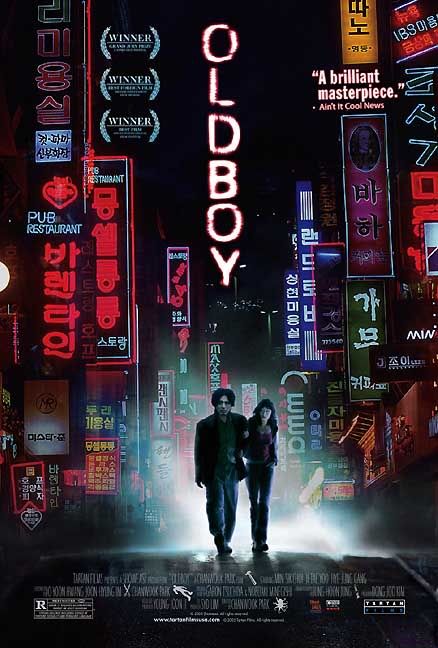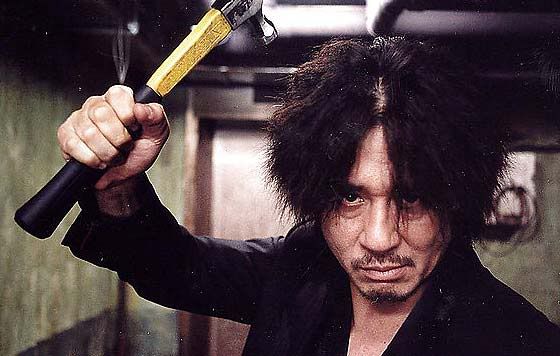Every now and again, life catches me off-guard. It’s times like these I need to turn to contributions from you, the audience. If you’ve ever read the Opinions section of the local newspaper, or the comments of an article on the Huffington Post, you know that sometimes the readers contribute just as much as the established writers. Thus, I present to you the Crank File.
Today’s Crank File entry comes to us courtesy of Monica A. Flink. Enjoy!
The trend of cross-overs is everywhere. Music is sampled, fantasy finds its way into modern Earth, and American superheroes drift to Japan to be reborn with bigger eyes and longer eyelashes. Unfortunately, of these things, I cannot find the fortitude to actually recommend the idea of Batman visiting Tokyo, or Spawn having a cousin who looks just like him on the outside but on the inside is a confused Japanese boy who wants to protect his sister.
American superheroes that are manga-sized for our pleasure is somewhat of an inflammatory topic, with both sides of the wall, “It’s crap!” and “It’s genius!” respectively, having good points. But does Bruce Wayne in Japan hold the same joy for Batman fans as Bruce Wayne in Gotham? And does anyone give a damn about the person inside the suit if it is not the horribly scarred Al Simmons? There are both sides to every argument to consider before making up your mind.

If you enjoy comics, you are going to look at the art as much as you look at the story, and the first bone of contention is certainly the difference in artwork. Gritty smears of ink and bright colors are replaced by slick black and white drawings, changing the air of the comic. Eyes are larger, more cartoony, and while one might think that works for the genre, it can also throw someone right out of the story. My biggest problem with the change in art is that the characters we are familiar with no longer look as they should. I find nothing familiar about the Bruce Wayne depicted in the graphic novels Batman: Child of Dreams or Batman: Death Mask.
Part of the love that will drive someone to read a manga version of his or her favorite American comic character is the familiarity. Take that away, and it is like reading something that has just had the Batman name slapped on it, leaving the reader disappointed. Pains may have been taken to match a more well-known art style, but it is still different enough to be noticed.

Where is his face?! That’s not a gritty smear of ink, it’s a lazy-ass smear of ink. Faces, Japan. Americans have faces.”
Aside from the art, the story is certainly something to consider as well. Anyone who has read Frank Miller or Kevin Smith’s stories can appreciate the dark tone and incorporation of canon-defined characters in new plots that keep readers coming back for more. I have found that the cross-over versions of superhero comics lack this distinctly.
It seems that the manga authors wish to write their own stories, and then happen to have Batman or Spawn or Iron Man in them. They brush off the established characters that man fans love and read to see just as much as the main characters, and come off with a story that does not have nearly as much impact because once the story is over, the new characters introduced are left behind or dead, with no emotional attachment required.

“Your lack of Joker makes you unacceptable. Feel free to commit seppuku.”
Even when the manga translations are adapted by someone famous, such as award-winning mystery writer Max Allan Collins, there is something wrong, something disjointed and disappointing about stories that do not include the characters we love, that support a good story. Perhaps it also can also be attributed to the fact that these manga versions of our beloved heroes are also generally one volume long, leaving precious short time to find something to attach to. It is as if they are afraid to hurt anyone’s feelings by making changes to a canon that technically the manga would not belong to, being stand-alone novels.
I suspect my largest beef with the idea of cross-over comics is the fact that I have come to expect a certain level of something special from manga. To put a finer point on it, they miss out on a lot of tits and gore that I really have come to expect from the Japanese, and I personally enjoy. I’m not asking for splatterpunk Batman here (though, seriously, how cool would that be?!) or Spawn pulling a mech out of his ass to use to fight Malebolgia, but keeping it so safe and careful is just too bland to pull off the manga style of art and story.
In the end, I will still buy more of these graphic novels with the eternal hope that someone will find a delicate balance between breaking new ground and incorporating what is beloved by millions. But if they continue to be as contaminated with insipid story lines and half-assed art proclaimed to be “realistic” because yeah, Batman is so damn realistic, then the American superhero manga cross-over graphic novel will be a fad of the past sooner than we think.
And I think every comic lover will be missing out if that happens.
Got something for the Crank File? Email me here.









